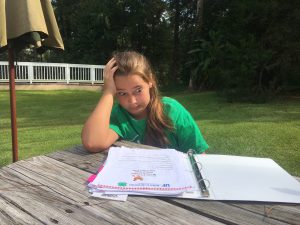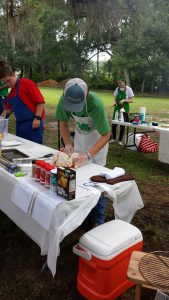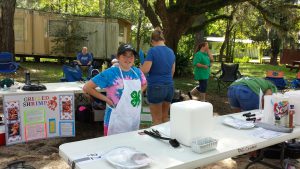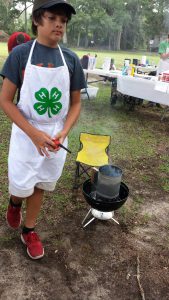4-H Record Books…Simplified!
In 4-H, young people have tracked their activities, events, profits and losses, skill development and learning experiences, and much more using the iconic 4-H Record Book. In addition to record keeping, the 4-H Record Book gives members an opportunity to reflect on their year, measure their achievements and growth, set goals, and develop plans to meet those goals. Once you understand the purpose and value of record books, you are probably wondering where to start. Here are the most frequently asked questions about record books to simplify the process:
What’s the difference between a project book and a record book? A project book guides youth through the project and includes background information and activities to help them master the subject matter. A record book is the record of what youth did and learned in the project and documents goals, knowledge and skills gained, leadership experiences, awards earned, and service to the community. Record books are typically bound in a cover, scrapbook or three-ring binder and turned in for evaluation at the end of the project or 4-H year.
Some project books include a records section, but many do not. If your project does not have a section for records, then you will want to insert a Florida 4-H Project Report Form (based on your age level).
What types of information should I keep track of for my record book?
| Cloverbuds | Juniors | Intermediates | Seniors | |
| Personal information | Name, 4-H age, club, # of years in 4-H, member, parent/club leader signatures | |||
| Project Plans and Goals | NA | What are your goals (run for office, attend a workshop, earn a blue ribbon in showmanship) | ||
| Project Highlights | A list of activities you did this year (demonstrations, field trips, leadership activities, workshops, exhibits) | |||
| Project Attachments | Photos of you doing project activities; newspaper clippings, club or workshop programs, exhibitor tags, cage cards, feed tags | |||
| Project Story, or Reflection | NA | What you learned, who helped you, what you liked (or disliked) about the project, what you would do differently next time, whether or not you encountered any problems and what you did to overcome them | ||
| Financial Records | Financial records are usually only associated with animal science, gardening and entrepreneurship projects. Not all record books will have a financial record section. | |||
How do I keep up with all that information?
| Calendar | Have a calendar dedicated to your 4-H work and record your activities- club meetings, workshops, how often you feed or water your project, shows or exhibits, etc. |
| Index box | Keep a recipe box full of index cards with dividers for each section of the record book. Each time you do something related to one of the sections, write it on the card. |
| Notebook | Keep a journal of your project, recording activities. You can even divide the notebook into sections that correspond with each section of your record book |
| Electronic Device | Yes! There is an app for that. Sponsored by Tractor Supply and National 4-H Council, there is a market animal record book app you can download from iTunes. |
To inspire you, here are some quotes that Florida 4-H youth wrote in their record books:
- “As the VP (vice president) of my club, I had many opportunities to speak in front of a crowd. This has helped me in other aspects of my life such as school. I have become a better public speaker.”
- “I have taken bigger and better responsibilities. I learned to be responsible and to challenge myself to bigger expectations and to be kind, nice, and pleasant to others.”
- “4-H has given me the opportunity to do things that I normally would not get to do.”
- “4-H has meant a lot to me because it teaches me so much about my project and our world. (I learned) to follow safety practices, treating animals with respect, being careful when leading an animal and watching out for others and their animals.”
As we start the 2017-2018 4-H year, think about your 4-H project area and how you will document it this year. If you have a skill to share and would like to inspire the next generation, consider becoming a 4-H volunteer. We offer a wide variety of roles to fit your interests and schedule. For more information about 4-H, visit our website or contact your local UF IFAS County Extension Office.




